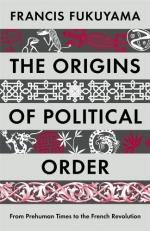|
This section contains 1,070 words (approx. 4 pages at 300 words per page) |

|
SOURCE: “The Sweetest Science,” in New York, June 7, 1999, pp. 88-9.
In the following review, Kirn offers skeptical assessment of The Great Disruption, finding fault in Fukuyama's faith in human nature and preference for stability.
Francis Fukuyama's The Great Disruption comes at a peculiar moment. In a season of school shootings, spy scandals, and “collateral damage” from errant cluster bombs, it's tempting to regard as wishful thinking a book that argues, using graphs and diagrams and lessons from economics and anthropology, that our present state of social turmoil will, in time, be naturally replaced by a new, benevolent moral order. But that is precisely Fukuyama's prediction, not merely his hope. A resurgence of grassroots goodness. A spontaneous regeneration of civic-mindedness. The dark days are almost behind us, he asserts. At a time when the average news watcher might mistake America for a rich but failing empire, unable to keep...
|
This section contains 1,070 words (approx. 4 pages at 300 words per page) |

|


